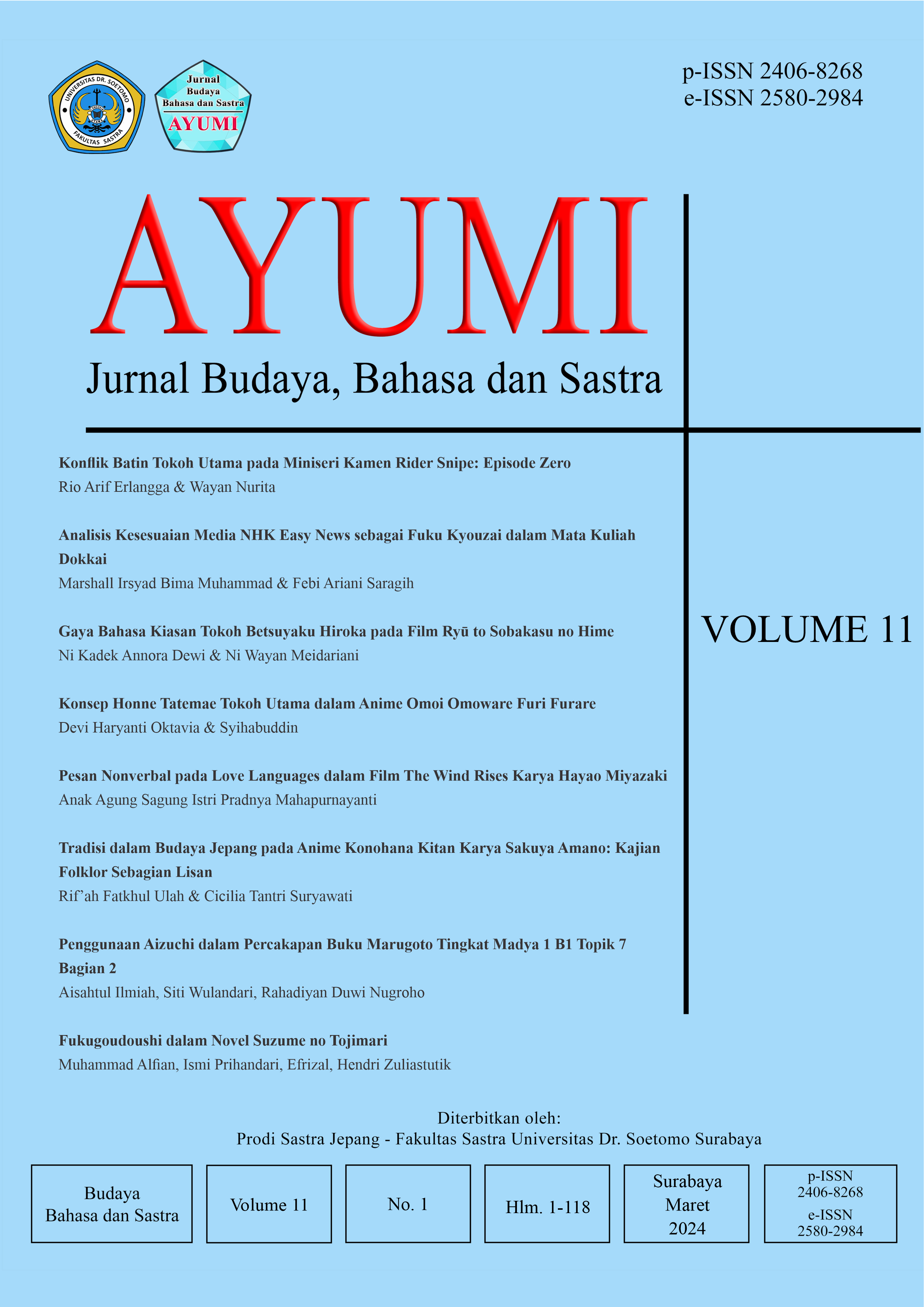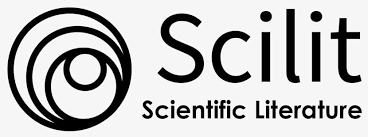Penggunaan Aizuchi dalam Percakapan Buku Marugoto Tingkat Madya 1 B1 Topik 7 Bagian 2
 Abstract views: 209
,
Abstract views: 209
,
 PDF 91-104 (Bahasa Indonesia) downloads: 178
PDF 91-104 (Bahasa Indonesia) downloads: 178
Abstract
Aizuchi is a term that refers to interjections or short responses used by Japanese people in everyday conversations to indicate that the listener/interlocutor is paying attention or understands what is being said. This research describes the use of aizuchi in conversational texts in Marugoto's book Intermediate Level 1 B1 Topic 7 Part 2 pages 154-155. The purpose of this research is to describe the use of aizuchi in conversation in Japanese. The benefit of this research is that researchers and readers can understand the various types of simple aizuchi used during conversation. The research method used is descriptive qualitative. Data analysis in this research uses Horiguchi theory. Based on the results of data analysis, the use of aizuchi found in this research is in 3 forms, namely, aizuchishi with 7 data, kurikaeshi with 3 data, and iikae with 2 data. First, the aizuchishi form, namely, a (ã‚), aa (ã‚ã‚), ãˆãˆ (ee), ãã†ã§ã™ã‹ (sou desu ka), ãã†ã§ã™ã (sou desu ne) each with 1 data and hai (ã¯ã„) with 2 data. Second, the form of kurikaeshi, namely, getsuyoubi (月曜日) 1 data and suiyoubi (水曜日) 2 data. Third, the form of iikae, namely, dougi (é“ç€) and hakama (袴) each have 1 data.
Keywords: aizuchi; aizuchishi; iikae; Japanese conversation; kurikaeshi.



1.jpg)


















